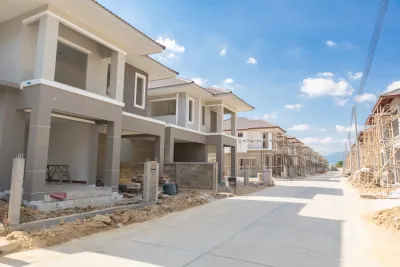Are policy changes enough to address the housing problems we face?

Last year I was on a Zoom call with an aspiring candidate for local office here in California. The subject was the housing crisis, and especially homelessness. Sadly, California is leading the nation in unsheltered humans by a large margin. They were angry. So are many of us.
“When I see someone sleeping under an overpass,” they said, “I see a failure of policy.”
They are not the only ones. A failure of policy is a refrain I hear far and wide, from folks with decades of experience in the housing industry, activists new to housing, jaded housing policy vets, and plenty of elected officials. There is no shortage of my fellow writers and researchers who would look at our housing crisis and see the failure of public policy. If only it were that simple.
The Limits of Public Housing Policy
I’m using the term “public policy” to mean all the ways that public laws, policies, and programs affect an issue. In housing, this means basic laws like property rights or tenant protection laws, budgeted programs like Housing Choice Vouchers or tax credits where the government spends money, or internal policies and rule-making that determine how agencies operate and where they focus. It also includes the ways in which people and organizations participate all of the above—from contacting elected officials to participating in planning decisions or community engagement efforts.
Public policy clearly plays a key role in virtually every aspect of housing. Richard Rothstein’s The Color of Law: A Forgotten History of How Our Government Segregated America brought renewed attention to the role that federal, state, and local housing and infrastructure policy played in the creation of a segregated America. Zoning and land use laws are the subject of heated debates around the country. Housing finance is incredibly intertwined with policy, from federal housing choice vouchers (also known as Section 8) and local affordable housing bonds to Fannie Mae and Freddie Mac and the mortgage income tax deduction.
It’s understandable that when people think about housing problems, they think about public policy. Not only is public policy everywhere in housing, but it’s also the place where those of us who aren’t part of the housing industry can most easily have a voice.
Unfortunately, centering public policy so heavily in our understanding of the housing crisis limits us in four important ways. First, while public policy is obviously an important means to an end, it can too often become the end in and of itself. We mount expensive campaigns to change policy, change processes, while little changes on the ground. Nicholas Bagley calls this the “procedure fetish” in American politics. We love us some process, but the real goal is to change housing outcomes.
Second, public policy is only one of many factors affecting those housing outcomes. Even if housing policy were perfect, laws don’t build and maintain houses. People do that, organizations and companies and agencies and individuals and small collectives do that...
FULL STORY: How to Retrofit the Housing Economy

Analysis: Cybertruck Fatality Rate Far Exceeds That of Ford Pinto
The Tesla Cybertruck was recalled seven times last year.

National Parks Layoffs Will Cause Communities to Lose Billions
Thousands of essential park workers were laid off this week, just before the busy spring break season.

Retro-silient?: America’s First “Eco-burb,” The Woodlands Turns 50
A master-planned community north of Houston offers lessons on green infrastructure and resilient design, but falls short of its founder’s lofty affordability and walkability goals.

Test News Post 1
This is a summary

Analysis: Cybertruck Fatality Rate Far Exceeds That of Ford Pinto
The Tesla Cybertruck was recalled seven times last year.

Test News Headline 46
Test for the image on the front page.
Urban Design for Planners 1: Software Tools
This six-course series explores essential urban design concepts using open source software and equips planners with the tools they need to participate fully in the urban design process.
Planning for Universal Design
Learn the tools for implementing Universal Design in planning regulations.
EMC Planning Group, Inc.
Planetizen
Planetizen
Mpact (formerly Rail~Volution)
Great Falls Development Authority, Inc.
HUDs Office of Policy Development and Research
NYU Wagner Graduate School of Public Service




























